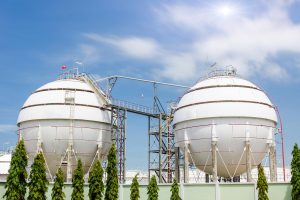The European Union (EU) and other major jurisdictions around the world have committed to achieve net-zero greenhouse gas emissions by 2050 or in the immediately following decades. The ‘Getting to Net Zero’ course at the Florence School of Regulation aims to provide participants with insights into the climate negotiations that followed the signature of the Paris Agreement, and an overview of the role of the various sectors of the economy on the road to net-zero. It also offers the chance to discuss possibilities and tradeoffs linked to the use of different policy tools to achieve net-zero. In order to do that, the course leverages comparative perspectives, with case studies from the EU, China, the US and other jurisdictions.
During the eight weeks of the course, participants will be introduced to the big picture and then deep-dive at the sectoral level: energy, industry, transport and building will all be discussed in detail. The specificities of the various sectors will be investigated and the interactions among sectors highlighted. Finally, two real-world policy issues will be discussed in optional mastery challenges that participants are invited to take on.
The course builds on the success of the EU Green Deal course, broadening the perspective while retaining two of its key assets: the broad expertise on European policy and regulatory issues available at the European University Institute and the access to a global network of policymakers and stakeholder representatives working on the frontier of net-zero policy and regulation.
The EU and several other jurisdictions around the world have committed to achieve net-zero greenhouse gas emissions by 2050 or the decade immediately after.
Reaching ambitious climate targets requires the contribution of every sector of the economy, including energy, industry, transport and buildings. Sectors differ in terms of emissions, availability of mature low-carbon technologies, market structure and demand patterns. These and other factors lead to a differentiated decarbonisation potential and determine a diverse set of challenges.
A rich policy toolbox is available to reduce emissions: some target emissions coming from all or most sectors of the economy, whereas other are sector-specific or seek to reduce emissions by promoting new technologies. Applying policies to reduce emissions can however generate side effects that must be dealt with to guarantee public goals going beyond climate change mitigation, such as social acceptance and economic competitiveness.
Multiple combinations of policy tools are possible to pursue net-zero emissions. Different countries implement alternative policy mixes, depending on the structure of their economy and preferences. They can also re-assess their choices over time, including due to developments in international trade or the outcome of an election.
Welcome class (10 April 2026 – 14:00-15:00 CEST)
Introduction to the course and the faculty. Q&A with the course participants.
Week 1: The big picture (13-19 April 2026)
In this week, we set the scene for the whole course by exploring the evolution over time and the distribution across countries and sectors of human-related greenhouse gas emissions. We then recall the story of international climate negotiations until the latest developments and discuss the challenges associated with international climate governance. We look at the decarbonisation commitments that some of the main jurisdictions around the world have taken and the key elements of their strategies to reach a net-zero economy. Finally, we discuss how decarbonisation strategies are affected by the rise of populism and the new geopolitical context.
Live sessions:
Topics: Anthropogenic climate change; evolution and distribution of GHG emissions; international climate negotiations and governance; Paris Agreement; nationally-determined contributions; decarbonisation strategies; climate backlash.
Week 2: The energy sector (20-26 April 2026)
The energy sector is a key vector in the transition to net-zero. Other sectors that currently consume unabated fossil fuels will need clean and reliable energy. In this week, we thus focus on the principal challenges for decarbonising the energy sector. We first examine the technologies behind the transition to zero-carbon energy, and consider the benefits and drawbacks of various policy tools used to encourage this transition. We then analyse how the shift to an energy system increasingly dominated by variable and distributed renewable energy sources creates complex problems for energy markets, infrastructure, and energy security. We moreover explore the policy responses to these challenges. Finally, we discuss policy and regulatory approaches to the more localised issues relating to the accelerated construction of clean energy and grid infrastructure, such as land-use conflicts and inclusive consultation processes.
Live sessions:
Topics: fossil fuels, renewable energy, nuclear energy, renewables support schemes, electricity markets, energy security, network planning, energy system digitalisation, just transition, land use, permitting, renewables acceleration areas.
Week 3: The industrial sector (27 April-3 May 2026)
In this week, we look at the role of the industrial sector in the road towards net zero. We present first the GHG emissions associated with this sector and the structure of the energy mix. We then provide an overview of the policy tools and main low-carbon technologies that can foster the decarbonisation of the sector. Later, we investigate how it is possible to support the development of a competitive clean-tech industry in a context of receding globalisation. Finally, we consider how to ensure the decarbonisation of the energy-intensive industries without undermining their economic sustainability.
Live sessions:
Topics: industrial decarbonisation technologies; carbon capture, storage and use; clean molecules; hydrogen; energy efficiency certificates; carbon contracts for difference; carbon border adjustment mechanism; carbon leakage; industrial competitiveness; industrial policy; clean-tech industry; critical raw materials; energy-intensive industries; state aid.
Week 4: The building sector (4-10 May 2026)
In this week, we look at the role of the building sector in the road towards net zero. We present first the GHG emissions associated with this sector and the structure of the energy mix that supply buildings. We then provide an overview of the policy tools and some of the low-carbon technologies that can foster the decarbonisation of the sector. Later, we investigate the challenges of increasing the efficiency of the building stock, with particular regard to the issue of financing. Finally, we consider the issue of energy poverty and the need to include vulnerable consumers in the energy transition.
Live sessions:
Topics: heat pumps; district heating and cooling; energy system integration; smart buildings; energy performance certificate; energy efficiency standards; eco-design and energy label; energy taxation; financing building renovation; energy poverty; subsidies and regulated energy prices.
Week 5: The transport sector (11-17 May 2026)
In this week, we explore key aspects of sustainable transport, focusing on electro-mobility, intermodality, and policy strategies for the decarbonisation of the sector. We examine how electric mobility is advancing, how transport systems integrate for efficiency and the role of social and economic behaviour in shaping demand for transport. We also discuss technological neutrality in decarbonizing transport means and how infrastructure developments, such as charging stations, support sustainable mobility. Finally, we assess the interaction between transport policy and policies in other sectors.
Live sessions:
Topics: sustainable and smart mobility, electro-mobility, electric vehicles, charging infrastructure, smart and bi-directional charging, mobility infrastructure, intermodality, modal shift, trade policy and transport means, technological neutrality, carbon pricing, ETS 2, alternative fuels, trans-European transport network (TEN-T).
Weeks 6 & 7: Buffer weeks (18 May – 4 June 2026)
Week 8: Mastery challenges (5 – 9 June 2026)
In this week, we target two specific and timely topics with the help of a series of guest speakers. Participants pursuing the master level will deliver their assignment.
Live session:
After completing this course, you’ll be able to:
The course is given in English and developed for:
Participants can take the course on three different levels:
1) Investigator: learn about the challenges of achieving net-zero emissions and understand the different strategies implemented in Europe and beyond;
2) Advocate: learn to discuss and debate the strategies to achieve net-zero emissions in Europe and beyond with colleagues and field specialists;
3) Master: learn to analyse, discuss and attempt to define/improve the strategy to achieve net-zero emission in a specific country or in a specific sector.
The amount of time required to take this course depends on the aimed course level as well as the level of expertise in the subject prior to joining the course. For example:
At the end of the course, the participants can earn a Certificate of Attendance, a Certificate of Completion or a Certificate of Excellence, depending of their performance and engagement throughout the course.
Each year, the Florence School of Regulation – Energy and Climate (FSR Energy & Climate) awards scholarships for a wide variety of training courses targeting a broad audience of professionals and academics.
Applications will be assessed by a Selection Committee of FSR members on a yearly basis. The successful candidates will be informed after February 2026 and will be provided with all relevant information on how to enroll in the online course or residential training of their choice.
Send your application by 25 January 2026.
Discounts
A 10% discount is available for groups of 5 or more participants from the same organisation. Please note that this discount cannot be combined with student discounts or donor free seat offers.
Contact: fsr.secretariat@eui.eu
Cancellation policy
Paid registration fee is non-refundable. However, registrant substitution may be made up to 20 days before the start date of the course.
For more information, please read the full FSR cancellation policy.
**Please kindly send your certificate of current studies with the stamp of your university to FSR secretariat (fsr.secretariat@eui.eu).
The start and end dates of your studies should also be clearly mentioned on the document. Please make sure that your period of studies fully covers the training course duration.
The "Getting to Net Zero" online course aims to provide an overview of the role of the various sectors on the road to net-zero, discuss the different policy tools available, and compare the experience gained so far by the EU with case studies from other jurisdictions.

For its first edition, the Specialised course on Electricity Markets will focus on the state of EU electricity market design, and engage participants in a deep-dive discussion around the role…

All you need to know about the power sector and power systems around the world Power system regulation is never at a rest, and this is particularly true for the…

The European Union (EU) and other major jurisdictions around the world have committed to achieve net-zero greenhouse gas emissions by 2050 or in the immediately following decades. The ‘Getting to Net…

Ensuring a Sustainable and Competitive Future for EU Agriculture The reform of the Common Agricultural Policy (CAP) for 2028–2034 comes at a moment of significant transition for European agriculture and…

From Geopolitics to Trading: Navigate Global Gas Markets with the Experts Building on the success of our online training, Specialised Training on the Regulation of Gas Markets, we are excited…

Learn the fundamental regulatory principles of the electricity and gas sectors through hands-on, real case activities and examples with instructors from national regulatory authorities from Europe and North America, the…

Participate in the most pressing debates on the regulation of transport in the European Union through hands-on activities based on real cases and examples presented by academics, regulatory authorities and…

Space is no longer optional for societies. It is deeply embedded in the systems that run our economies, secure our nations, and shape our daily lives. What is new is…

EU Electricity Network Codes & the Clean Energy Package Enter the world of electricity markets in Europe ‘Evolution of electricity markets in Europe’ is an 8-week online course in collaboration…
To meet, discuss and learn in the channel that suits you best.